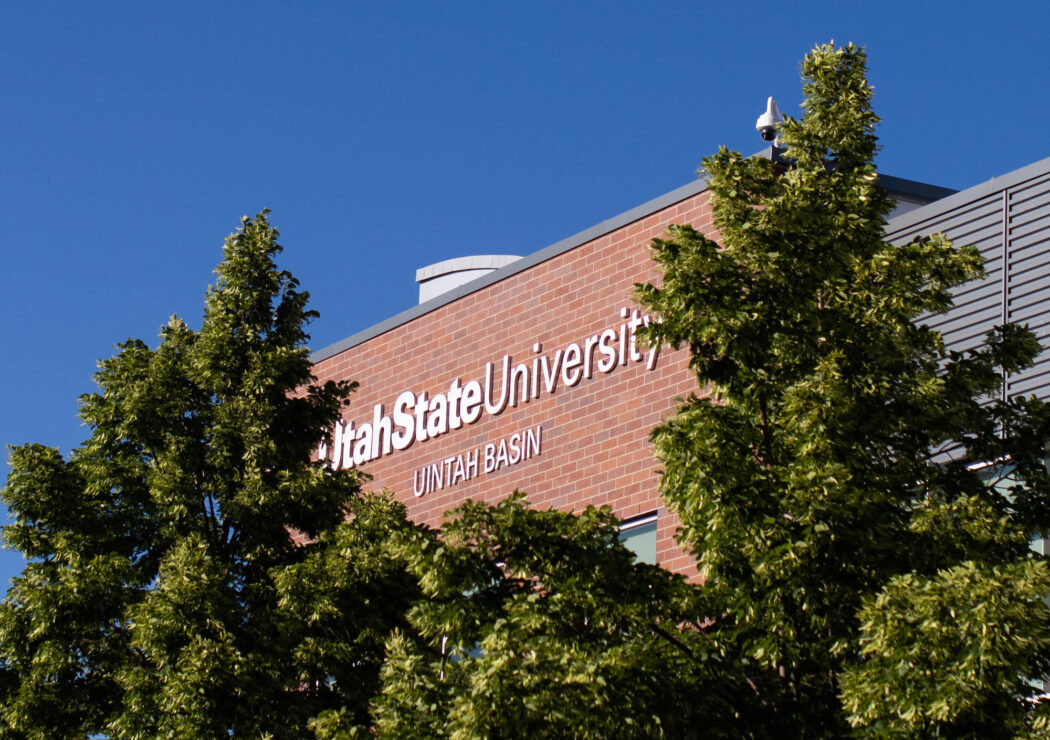New bill gives additional $150,000 to Bingham Research Center
Utah State University’s Bingham Research Center received an additional $150,000 and renewed $250,000 in funding, making for a total of $400,000 in annual appropriations, from a bill Gov. Spencer J. Cox signed into law on March 14.
Such increased funding will provide more spots for student researchers, according to Seth Lyman, a director and research associate professor at the USU Uintah Basin Bingham Research Center — established in 2010.
The increased number of positions will expedite the center’s research progress, he said.
“There are a lot of datasets, a lot of ideas, and not enough time to pursue them all. And so, the way that it benefits the Bingham Research Center to have more students is that the students can dig down on research questions, or a research data set, that the full-time staff haven’t had time to give enough attention to. And then, they can expand what we’re capable of,” Lyman said.
Funding will also replace obsolete, fifteen-year-old equipment to provide newer machines — machines that will give much higher quality data, according to Lyman.
The Uintah Basin Air Quality Research Project studies ozone formation and measures air pollutants in the Uintah Basin through computer model simulations. The data is then used to track emission changes over time and is annually reported to the legislature.
Groups like the Utah Division of Air Quality have used their data in crafting regulations.
The Utah Petroleum Association has also been involved with the center’s “Latch the Hatch” program, which, according to the Bingham Research Center, “encourages companies to take specific actions to reduce tank emissions.”
The center has reported success with declines in winter ozone levels. Since 2013, days where the ozone exceeded the Environmental Protection Agency’s standards have decreased by four per year.
Lyman noted this particular winter’s ozone levels have increased. Stakeholders in the Bingham Research Center have expressed concerns about this winter’s increasing amounts of ozone.
Such increases could be the result of pollution emissions from the oil and gas industry or even “changes to ozone chemistry that are the result of our uniquely deep snowpack this winter,” according to Lyman.
“Figuring that out is probably the task of the year,” Lyman said.
Utah House Rep. Scott Chew, R-Vernal, sponsored the bill funding Uintah Basin’s research, officially called H.B. 319: Uintah Basin Air Quality Research Project Amendments.
As a Uintah Basin native, he said he has personal knowledge of where some of the research occurs, even having his sheep grazing allotments near the center’s experiments.
In fact, this is not the first time Chew has sponsored, or helped sponsor, legislation for the Uintah Basin Air Quality Research Project.
In 2016, S.B. 118 Uintah Basin Air Quality Research Project kickstarted the project’s funding and research. Former Sen. Kevin Van Tassell sponsored the bill, with Chew floor sponsoring it in the House.
S.B. 118 would be automatically repealed via a sunset date on July 1, 2023. To avoid the project receiving the repeal, Chew sponsored H.B. 319, which gave more funding to the research.
Funds for the research entirely came from the Infrastructure and Economic Diversification Investment Account, consisting of oil and gas severance tax revenue, legislative appropriations and private funding grants.
H.B. 319 will continue to fund Uintah Basin’s air quality research through an ongoing appropriation of $150,000.
-Jenny.Carpenter@usu.edu
Featured photo by Bailey Rigby

